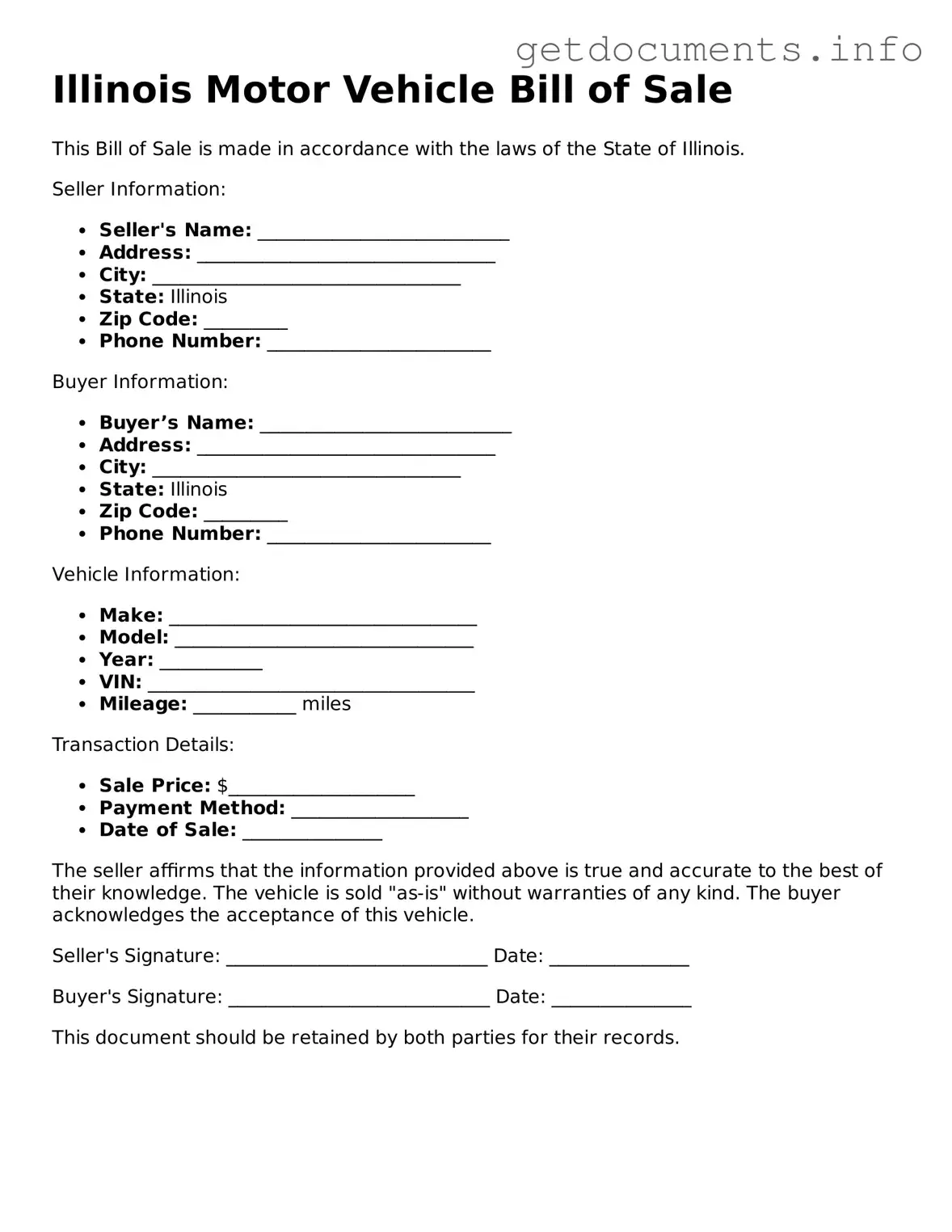Free Motor Vehicle Bill of Sale Template for Illinois
The Illinois Motor Vehicle Bill of Sale form is a legal document that records the transfer of ownership of a vehicle from one party to another. This form provides essential details about the vehicle, including its make, model, and VIN, as well as the buyer and seller's information. Ensuring that this document is filled out correctly is crucial for a smooth transaction.
Ready to complete your vehicle sale? Fill out the form by clicking the button below.
Access Motor Vehicle Bill of Sale Editor

Free Motor Vehicle Bill of Sale Template for Illinois
Access Motor Vehicle Bill of Sale Editor
Got places to be? Complete the form fast
Fill out Motor Vehicle Bill of Sale online and avoid printing or scanning.
Access Motor Vehicle Bill of Sale Editor
or
⇩ PDF File
